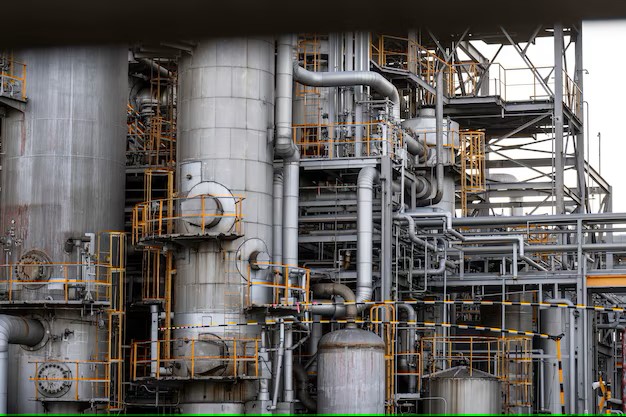Flow Assurance in Oil & Gas Production Systems 4th – 8th August, 2025
- Description
- Reviews
Course Overview
This 5-day specialised training program is designed to equip professionals with the technical knowledge and practical skills required to manage and optimise flow assurance in oil and gas production systems. The course focuses on addressing the challenges that impede the uninterrupted flow of hydrocarbons, including hydrate formation, wax deposition, asphaltene buildup, and scaling in pipelines and subsea systems. Participants will explore prediction models, mitigation strategies, and prevention techniques using thermal management, chemical inhibitors, and mechanical methods. Real-world case studies and practical exercises will ensure a comprehensive understanding of flow assurance best practices, enabling attendees to enhance production efficiency and system reliability.
Course Objectives
By the end of this course, participants will be able to:
-
Understand the fundamentals of flow assurance and its significance in oil and gas production.
-
Identify common flow challenges, such as hydrates, wax, asphaltenes, and scale, and their causes.
-
Apply prediction tools and techniques to assess flow risks in pipelines and subsea systems.
-
Develop strategies to prevent and mitigate flow blockages using thermal, chemical, and mechanical solutions.
-
Evaluate the economic and operational impact of flow assurance issues and optimise production efficiency.
-
Implement best practices for monitoring and maintaining flow assurance in oil and gas systems.
Target Audience
-
Engineers involved in production, process, and flow assurance.
-
Subsea and pipeline engineers.
-
Operations and maintenance personnel in oil and gas production facilities.
-
Technicians responsible for monitoring and troubleshooting flow-related issues.
-
Project managers overseeing oil and gas production and transportation systems.
-
Professionals aiming to enhance their understanding of flow assurance strategies and practices.
Daily Agenda
Day One: Introduction to Flow Assurance
-
Overview of Flow Assurance: Importance and scope in oil and gas production.
-
Hydrocarbon Production Systems: Understanding reservoirs, pipelines, and subsea systems.
-
Challenges in Flow Assurance: Key issues such as hydrates, wax, asphaltenes, and scale.
-
Flow Dynamics in Pipelines: Fluid behaviour and multiphase flow fundamentals.
-
Prediction Models and Software Tools: Introduction to modelling tools for flow assurance analysis.
Day Two: Hydrate Formation and Mitigation
-
Understanding Hydrates: Conditions for hydrate formation and their impact on flow.
-
Prediction Techniques for Hydrate Risk: Thermodynamic and kinetic models.
-
Hydrate Prevention Strategies: Insulation, heating, and depressurisation techniques.
-
Chemical Inhibitors: Low-dosage hydrate inhibitors and their application.
-
Case Study: Hydrate-related incidents and resolution strategies.
Day Three: Managing Wax and Asphaltene Deposition
-
Wax Deposition in Pipelines: Causes, detection, and prevention methods.
-
Thermal Management Techniques: Insulation and heat tracing systems.
-
Chemical and Mechanical Removal Methods: Solvents, dispersants, and pigging operations.
-
Asphaltene Buildup: Mechanisms, impact, and mitigation strategies.
-
Workshop: Designing a flow assurance plan for wax and asphaltene management.
Day Four: Scaling and Corrosion in Production Systems
-
Scale Formation Mechanisms: Common types of scaling and their impact on systems.
-
Prediction and Detection Techniques: Monitoring scaling tendencies in production.
-
Scale Prevention and Removal: Chemical treatments and mechanical interventions.
-
Corrosion Challenges: Identifying and managing corrosion in pipelines and subsea equipment.
-
Risk Assessment: Evaluating the impact of scale and corrosion on production.
Day Five: Integrated Flow Assurance Strategies
-
Combining Mitigation Techniques: Developing a holistic approach to flow assurance.
-
Monitoring and Maintenance: Real-time monitoring tools and predictive maintenance practices.
-
Economic Impact of Flow Assurance: Cost analysis of prevention versus remediation.
-
Case Studies and Lessons Learned: Analysing successful flow assurance strategies.
-
Final Assessment: Group activity to design an integrated flow assurance solution for a production system.
-
Course Wrap-Up: Review of key concepts and practical applications.
Why Choose this Course?
This course provides a comprehensive understanding of flow assurance challenges and solutions in oil and gas production systems. It combines theoretical knowledge with hands-on applications, enabling participants to predict, prevent, and resolve flow-related issues effectively. The training ensures that professionals are equipped to enhance production reliability, optimise operational costs, and maintain system integrity under diverse conditions.
Learning Outcomes
Upon completion of the course, participants will:
-
Gain a thorough understanding of flow assurance principles and challenges.
-
Be proficient in applying prediction models and mitigation techniques for flow assurance.
-
Understand the use of thermal, chemical, and mechanical methods to maintain flow.
-
Develop integrated strategies to manage and resolve flow assurance issues.
-
Enhance production efficiency and system reliability through effective flow assurance practices.





